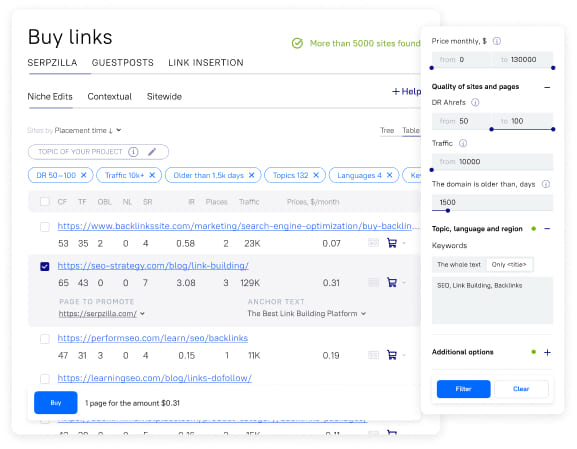To improve your website’s visibility online, it’s crucial to know the words people use in search engines. It’s not just about choosing words; you need to understand what users are searching for and why. The ability to find and use these words will make your site more noticeable. We’ve prepared a brief guide to help you navigate this issue and enhance your SEO. Here’s useful information on how to master keyword research.
Step 1. Understanding Search Intent
Before diving into tools and metrics, grasp the concept of search intent. It’s not just about what people are searching for, but why they are searching for it. Classifying search queries into informational, navigational, transactional, and commercial investigation helps tailor your content and keywords to meet those specific needs.
Step 2. Utilizing the Right Tools
A plethora of tools exists for keyword research, each with its unique strengths. Start with Google Keyword Planner for basic insights and volume estimates. Don’t shy away from exploring other tools like SEMrush, Ahrefs, or Moz for deeper analytics, competitor keyword strategies, and niche-specific opportunities. Remember, the right tool is one that aligns with your specific SEO goals.
Step 3. Analyzing Competitor Keywords
Understanding your competition is key to identifying gaps and opportunities in your keyword strategy. Use tools to analyze the keywords your competitors are ranking for, especially those driving traffic to their sites. This can uncover valuable insights into keywords you might be missing or areas where you can better optimize.
Step 4. Focusing on Long-Tail Keywords
While high-volume keywords are attractive, they’re often highly competitive. Long-tail keywords, though lower in search volume, can drive highly targeted traffic to your site. These are particularly useful for addressing specific queries and aligning with voice search trends. Incorporate long-tail keywords into your strategy to capture niche markets and improve conversion rates.
Step 5. Evaluating Keyword Difficulty
Not all keywords are worth pursuing. Keyword difficulty scores, provided by most SEO tools, can help you assess how hard it would be to rank for a specific term. Balance your strategy between high-reward but difficult keywords and low-hanging fruits that can bring quick wins.
Step 6. Leveraging Local SEO
For businesses with a physical presence or a specific geographical focus, local SEO is crucial. Incorporate location-specific keywords into your strategy. Utilize Google My Business and other local listings to enhance visibility in local search results, ensuring your keywords reflect local search behaviors and preferences.
Step 7. Keeping an Eye on Keyword Trends
SEO is not a set-it-and-forget-it endeavor. Markets evolve, and so do the ways people search. Regularly monitor keyword trends using tools like Google Trends. Stay ahead by adapting your keyword strategy to reflect emerging trends, seasonal interests, and changing user behaviors.
Step 8. Integrating Keywords Naturally
Lastly, the integration of keywords into your content should feel natural and valuable to the reader. Keyword stuffing is a dated and penalizable practice. Focus on creating quality content that naturally incorporates your targeted keywords, aligning with the user’s search intent and providing genuine value.
Boost your SEO results! Link building has become fast and easy with Serpzilla. Buy quality backlinks on authority websites with high DR.

Conclusion
Keyword research is a dynamic and integral part of SEO that requires continuous learning and adaptation. By understanding search intent, utilizing the right tools, analyzing competitors, and focusing on long-tail and local SEO, you can craft a robust keyword strategy that drives traffic and conversions. Remember, the goal is not just to attract visitors, but to attract the right visitors at the right time. With a thoughtful approach to keyword research, SEO specialists can achieve just that, securing their place at the forefront of search engine success.








